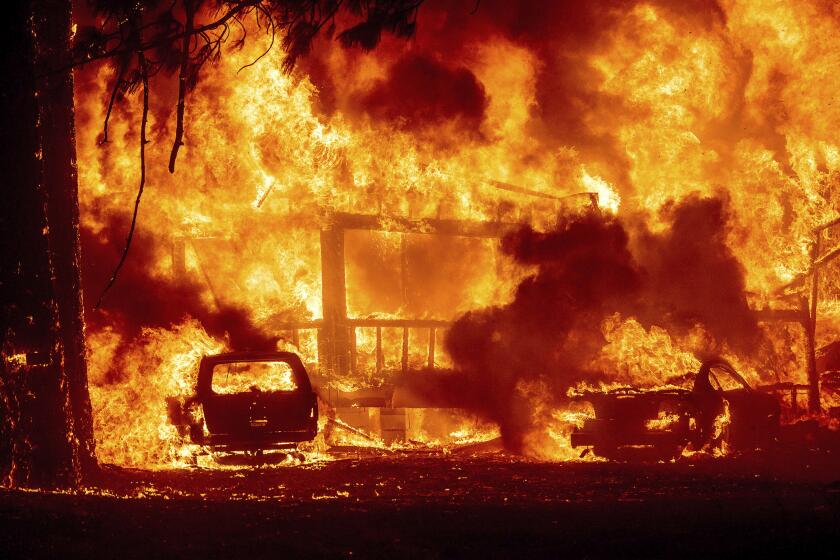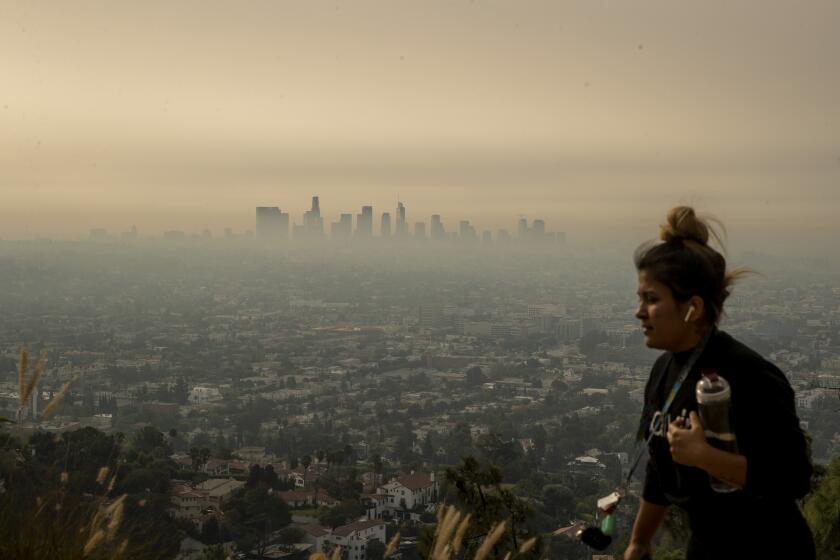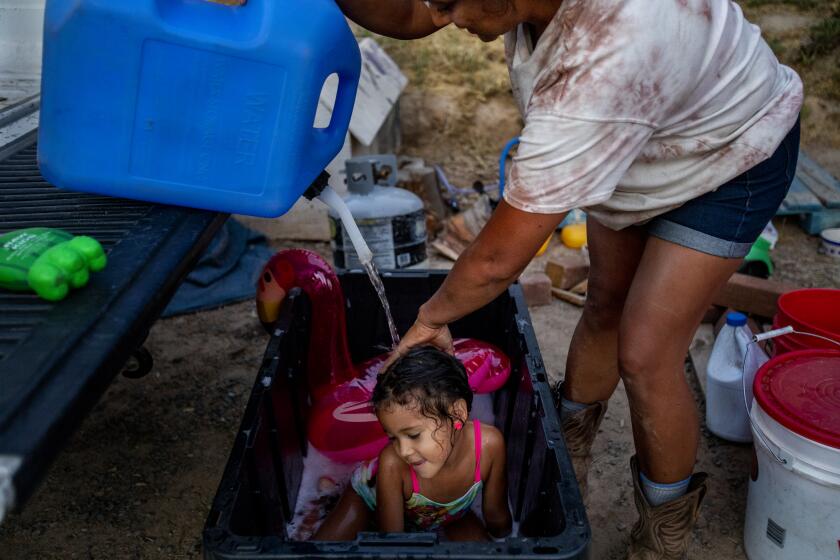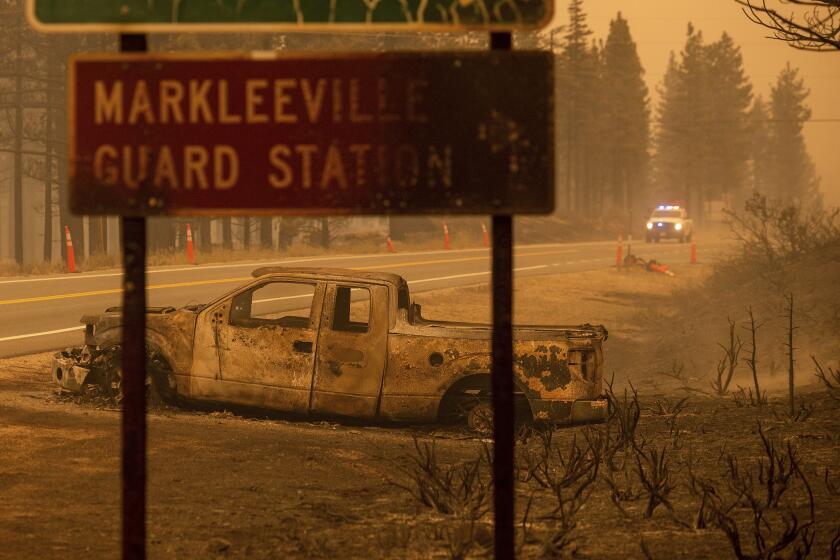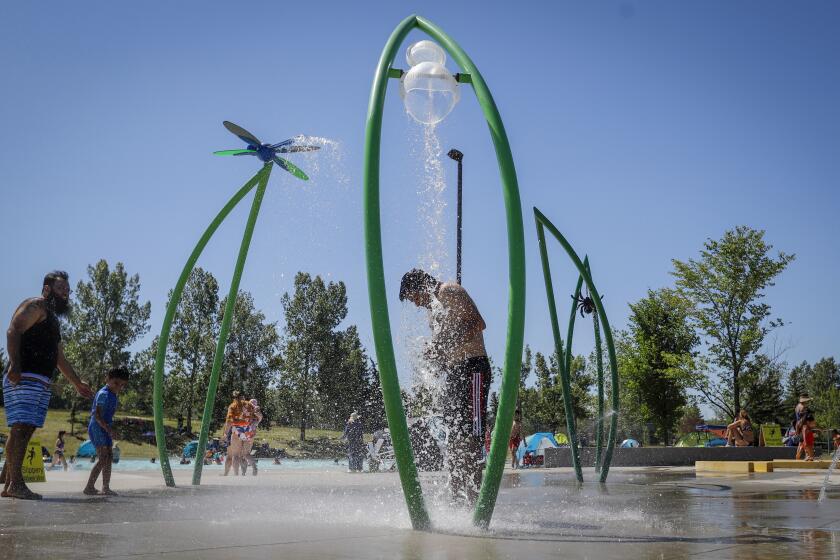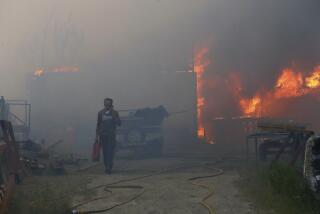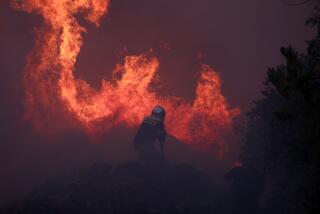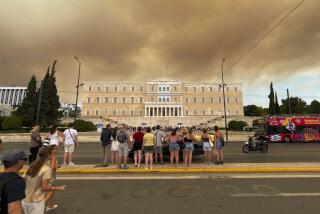Firefighters save Olympics birthplace in Greece as blazes rage around the Mediterranean
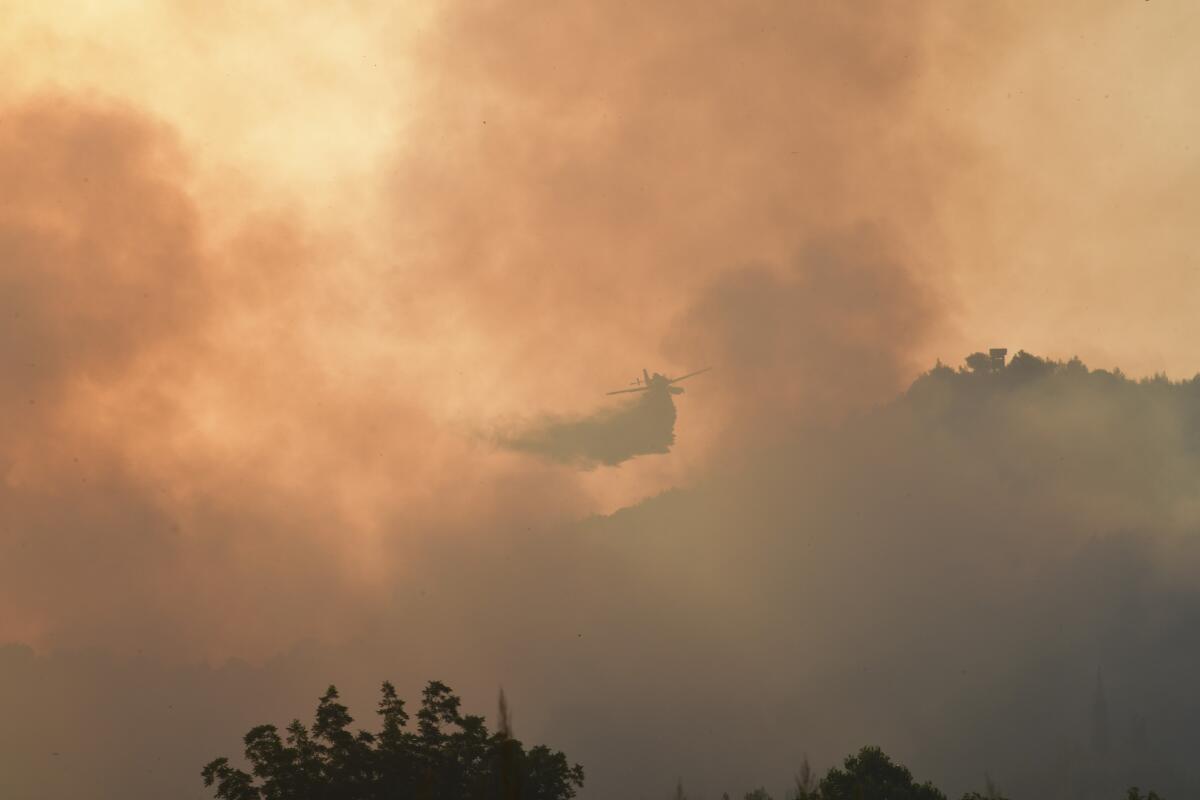
- Share via
LIMNI, Greece — Forest fires fueled by a protracted heat wave in Greece raged into Thursday, forcing the evacuation of dozens of villages as firefighters managed to prevent the flames from reaching the archaeological site at the birthplace of the ancient Olympics.
The Greek military announced that it would increase its involvement in firefighting and prevention, with ground and air patrols in areas vulnerable to wildfires.
At least three significant fires were burning — on the island of Evia, in southern Greece and on the outskirts of Athens, where a major forest blaze rekindled — as well as dozens of smaller ones. No deaths or severe injuries have been reported, but there has been widespread destruction to buildings and to Greece’s shrinking forests.
“The country is facing an unprecedented environmental crisis,” Prime Minister Kyriakos Mitsotakis said on a visit to the site of the blaze in southern Greece. The fire had threatened ancient Olympia, where the Olympics were held every four years from 776 BC for more than a millennium.
More difficult days lie ahead, he said, as winds have been predicted to pick up and the heat wave continues.
“I fully understand the anger, rage, exasperation of people who have seen their property lost,” Mitsotakis added.
Another day of dangerous winds is on tap as the Dixie fire continues to grow and the River fire burns homes north of Sacramento.
The prime minister said ancient Olympia’s archaeological site and museum had been successfully protected.
Citizens Protection Minister Michalis Chrisochoidis said earlier that firefighters had waged “an all-night battle” to save the site.
“We will continue the battle all day in order to contain all the fronts and extinguish the fire. The conditions are difficult,” Chrisochoidis said.
The same area was ravaged by wildfires in 2007 that killed dozens of people but spared Olympia’s ruined sports venues and temples.
Experts say air purifiers can be helpful in combatting the spread of COVID-19, as well as other harmful particles filling the air from wildfires.
The fire department said 174 firefighters, nine ground teams, 52 vehicles, two water-dropping planes and four helicopters were tackling the fire, which broke out Wednesday. Evacuation orders were issued for more than a dozen villages.
On the northern fringes of the Greek capital, a fire that had been on the wane after burning into a suburb Tuesday rekindled, sending plumes of thick smoke into the sky and fire trucks racing to the area, sirens blaring.
The fire in the Athens suburb of Varibobi had damaged dozens of homes and sent thousands fleeing earlier in the week, but had no longer been threatening inhabited areas. Authorities sent text messages to cellphones in the area urging people to evacuate.
A heat wave that authorities have described as Greece’s worst since 1987 has baked the country for more than a week and is forecast to last until at least Sunday. It has sent temperatures spiraling to 113 degrees and created tinder-dry conditions in shrubland and forests.
Thousands of people displaced by the Camp fire in 2018 are still stuck in limbo, many camping on their own land and fearing eviction.
Neighboring countries face similar conditions, fueling deadly and widespread wildfires in Turkey and blazes in Italy and across the Mediterranean region. Officials in Albania said one person died of smoke inhalation near the southern city of Gjirokaster.
In Turkey, a wildfire that reached the compound of a coal-fueled power plant in the southwest, forcing residents to flee in boats and cars, was contained Thursday after raging for some 11 hours.
But others continued to burn. Turkey’s worst wildfires in decades have blazed for nine days amid scorching heat, low humidity and constantly shifting strong winds. The fires have so far killed eight people and countless animals.
A European Union disaster-response group said firefighters and water-dropping planes were being sent from EU member states to Italy, Greece, Albania and North Macedonia.
The U.S. Forest Service indicates it will be more aggressive in putting out blazes early rather than letting some burn as a way to thin out brush.
The EU Atmosphere Monitoring Service said smoke plumes from the region’s wildfires were clearly visible in satellite images, which also showed that the intensity of the wildfires in Turkey was at the highest level since records started in 2003.
Greece saw more than 100 wildfires break out over 24 hours from late Tuesday to late Wednesday. Defense Minister Nikolaos Panagiotopoulos said Thursday that the armed forces would expand their role in fire prevention, with ground and air patrols over areas vulnerable to wildfires. The air patrols are being carried out by both manned and unmanned aircraft, he said.
A major fire that broke out Tuesday was ravaging forests on the island of Evia, near the Greek mainland, leading to the evacuation of villages. The coast guard evacuated around 90 people from a beach.
Scientists note something different this year as the world staggers through another summer of extreme weather: Wealthier countries are getting hit.
More than 160 firefighters, three planes and three helicopters, as well as five ground teams and 57 vehicles, were deployed to the wildfire in Evia.
France’s civil protection agency said 40 French firefighters and eight tons of material were headed to Greece late Wednesday to assist in the Evia blaze.
Greek scientists said the total destruction in just three days this month in Greece exceeded 50% of the average area burned in the country in previous years. An Athens Observatory report said an estimated 14,800 acres went up in smoke between Sunday and Wednesday.
The causes of the Greek wildfires were unclear, but authorities say human error and carelessness are most frequently to blame.
More to Read
Sign up for Essential California
The most important California stories and recommendations in your inbox every morning.
You may occasionally receive promotional content from the Los Angeles Times.
